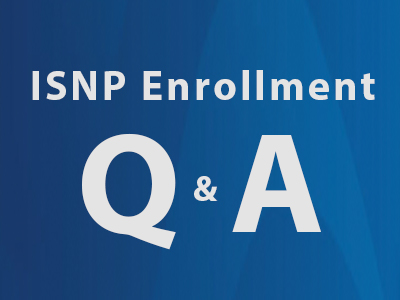Q&A About ISNP Enrollment

admin |
January 29 / 2021

Let’s use round numbers to get a back of the envelop sense of the #ISNP market relative to the ¼ trillion dollar Medicare Advantage market with 25mm members & 40% penetration.
~100,000 members are enrolled in ISNPs with ~1mm of the 1.3mm nursing home residents being eligible. 1mm eligible seniors x $2,000 premium per month x 12 = $24 billion market with 10% penetration.
What does this mean…
To CMS’ credit, they allowed for a Medicare Advantage Plan with a customized Model of Care for nursing home residents. However, with the 15-year rapid expansion of community-based Medicare Advantage Plans to upward of 25mm members – it was not worth the large insurers time to pause and pursue the ISNP on a facility by facility basis en masse.
Eventually, nursing homes recognized 1) their residents deserved access to the customized ISNP #ModelofCare and 2) their facilities deserved to participate in the benefits of executing that Model of Care.
As Anne Tumlinson laid out, #ProviderOwnedISNP grew from 9 percent of all I-SNPs offered in 2015 to 37 percent in 2021.
The runway remains long. However, when the ISNP is offered in an engaged home, eligible seniors enroll at a 60-80% rate due to the unique #ModelofCare- so we’ll get there.

